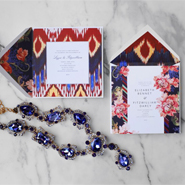- About
- Subscribe Now
- New York,
July 29, 2013

Fifty-seven percent of ultra-affluent millennials say that they enjoy purchasing luxury and designer brands compared to 28 percent of all adults who say the same, according to a new report from the Shullman Research Center.
The “Generational Differences in Luxury Consumers’ Attitudes and Buying Plans” report found that ultra-affluent millennial luxury buyers have a different attitude toward purchasing goods than Generation X and baby boomers.
“It is very difficult to address Gen X and baby boomers while you are also trying to encompass the millennials,” said Bob Shullman, founder/CEO of the Shullman Research Center, New York.
“The millennials are distinctly different,” he said.
“One size does not fit all. If you go with a one-size-fits-all approach, you will lose a consumer group.”
The Shullman Research Center conducted this survey online Feb. 26-March 6 among five samples of adult U.S. consumers – all household income levels plus four income samples of 250 surveys each as follows: $75,000-$149,999, $150,000-$249,999, $250,000-$499,999 and more than $500,000.
The Generational Differences in Luxury Consumers’ Attitudes and Buying Plans report takes into consideration the March Preview Wave. Results were weighed with estimates from the March 2012 Current Population Survey as reported by the Census in 2012.
Different breed
Overall, ultra-affluent millennials are more optimistic about the economy than ultra-affluent Gen Xers or baby boomers.
Fifty-five percent of affluent millennials say that they are very optimistic or optimistic about the United States economy, while 31 percent of Gen Xers and 29 percent of baby boomers say the same.
In addition, millennials also plan on spending more in the future.
Fourty-four percent of ultra-affluent millennials say they will spend more in the next year, while only 7 percent say they will spend less.
Thirty-four percent of Gen Xers and 31 percent of baby boomers plan to spend more in the next year.
Michael Kors' millennial-focused “What’s in your Kors?” blog campaign
Futhermore, the report shows that these ultra-affluent millennials enjoy shopping and many seek out luxury brands and superior service.
Fifty-three percent of ultra-affluent millennials seek superior service while shopping and 55 percent say that they “love to shop,” compared to 33 percent of ultra-affluent baby boomers who say the same.
However, when buying luxury products, ultra-affluent millennials buy slightly less than their Gen X and baby boomer counterparts.
Forty-seven percent of ultra-affluent millennials purchased luxury in the last year, while 65 percent of ultra-affluent Gen Xers and 56 percent of ultra-affluent baby boomers did.
Although millennials are not buying as much luxury as the older generations are, millennials are likely to continue their luxury consumption throughout the rest of their life if it is established at an early age.
“Millennials are not spending as much as the baby boomers, but they are into luxury,” Mr. Shullman said.
“As they get older, they will probably still be into luxury,” he said.
Versace Versus products for younger generations
Pick a target
Many apparel and accessories brands have been revamping campaigns and collections to specifically target millennials.
For instance, Italian fashion house Versace is targeting entry-level consumers with the launch of its Versus Versace Web site that offers content and ecommerce.
Versace counted down to Versus through its social media platforms to spread the word to its followers. With the launch of this rebranded collection, Versace can convert young consumers into brand enthusiasts at an early age (see story).
In addition, U.S. label Oscar de la Renta is offering products beyond fashion to transition to a lifestyle brand and create a bond with millennials.
The fashion house known for its apparel, accessories and beauty lines is expanding to new categories with its first in-house home collection launched this year and a new line of paper products sold through online stationery brand Paperless Post. Fashion marketers must work to remain relevant to their evolving target audience so that the longevity of their brand is not at risk and one way to do so is through new product categories (see story).
However, when targeting a younger demographic, brands should be careful to not drive away older customers and lose their DNA. Campaigns should focus on one consumer demographic since consumers’ wants and needs vary by generation.
“Pick your target and deal with who they are, what their attitudes are and what their current life stage is about,” Mr. Shullman said.
“Millennials do not have the concerns and worries that older generations have,” he said.
Final take
Erin Shea, editorial assistant on Luxury Daily, New York
Share your thoughts. Click here